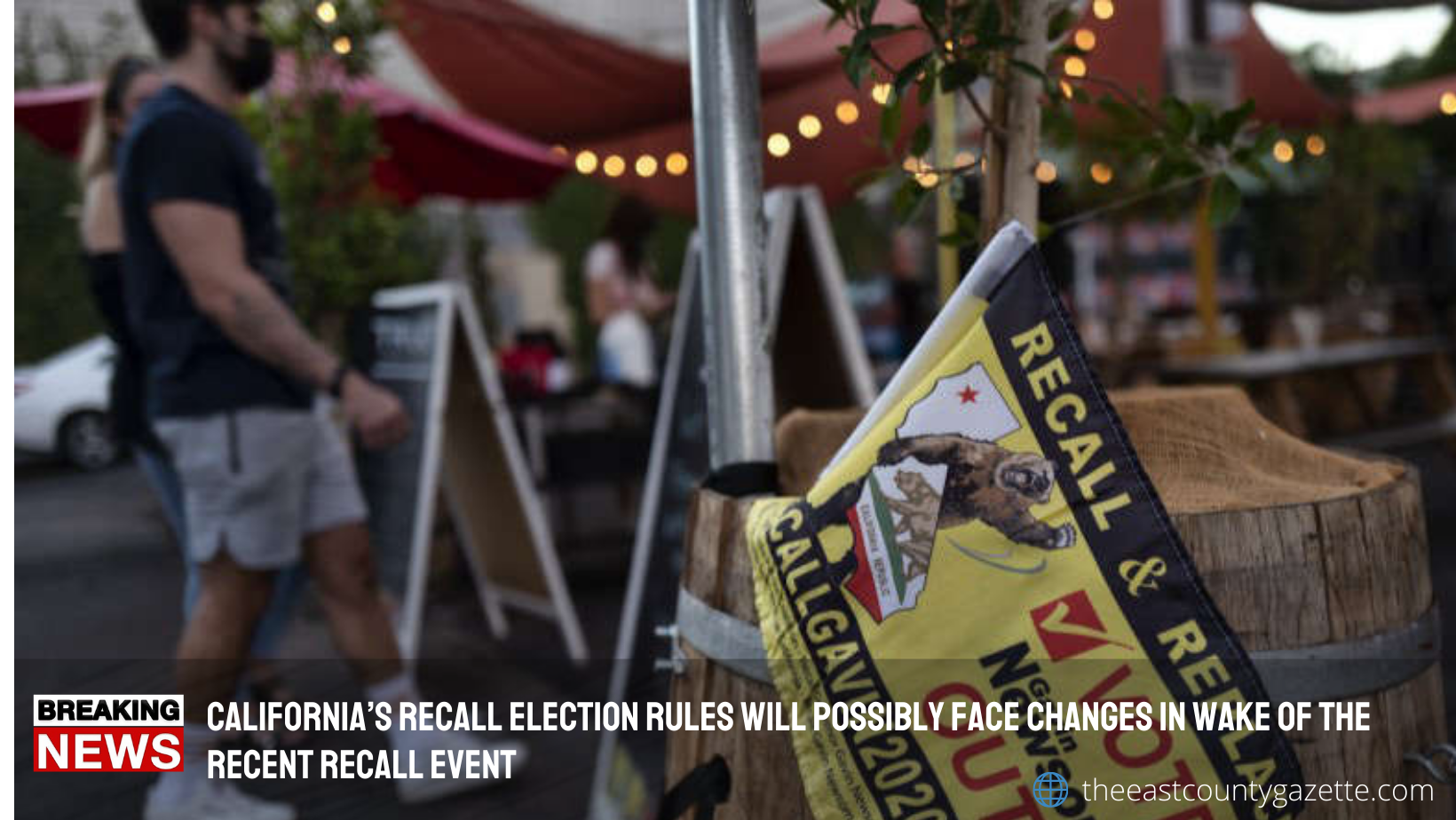Sacramento – The rules governing the recall elections in California will face much scrutiny and possible changes as two legislators said on Wednesday that the failed effort to remove Gov. Gavin Newson from office was too expensive and unnecessarily confusing.
Even though election returns remained incomplete after Tuesday’s event, the result did not do favors to the recall supporters as they found their effort millions of votes short with projections. Newson easily won enough support to continue the final year of his current term. It was previously agreed by California lawmakers to spend at least $276 million from the most recent state budget in order to cover the costs of the recall, but some elections officials have estimated the final amount to be closer to $300 million.
“That money could be spent on housing, on homelessness, on combating climate change, forest fires, early childhood education, you name it,” said Assemblyman Marc Berman (D-Menlo Park), chairman of the Assembly Elections Committee. “There’s a lot of desire, and need, for reforming the recall process.”
Recommended Read: Texas Receives Approval for Supplemental Nutrition Assistance Program (SNAP) for Victims of Hurricane Nicholas.
An amendment to the California Constitution in 1911 gave voters the power to remove an elected official before the end of their term in office. Consequently, only one small change was made to the recall process over the years. It had been clear that most recall efforts have failed to qualify for the ballot, however, similar issues and concerns about the rules were brought up in 2003 when then Gov. Gray Davis, a Democrat, was ousted in favor of Republican Arnold Schwarzenegger.
According to Berman and his elections committee counterpart in the state Senate, Sen. Steve Glazer (D-Orinda), said Wednesday that they intend to launch a bipartisan effort by early next year to review the existing rules governing statewide recalls and a number of ideas to reform the process. These ideas have been offered in recent weeks prior to the recall by academics and constitutional experts. Any substantive change would have to be approved by California voters at the statewide primary or general election next year.
“The voters want to see a more democratic process put in place that keeps elected officials accountable, that prevents political gamesmanship of the rules,” Glazer said during a news conference Wednesday.
Recommended Read: Florida Nurse Faces 5 Years in Prison After Death Threats to VP Kamala Harris.
Several also called for a broad review of recall elections. Assemblyman Kevin Kiley (R-Rocklin), whose recall replacement candidacy drew about 160,000 votes in returns as of Wednesday, urged the Democratic lawmakers to include scrutiny of campaign finance laws, posting on Twitter that the “quirk of unlimited campaign contributions” for the incumbent who is the subject of a recall allowed Newsom to bombard TV airwaves with TV ads.
Recently, a poll conducted by UC Berkeley’s Institute of Governmental Studies and co-sponsored by The Times found a majority of voters surveyed said they support several options for revising the rules pertaining to recalls. This poll published on Monday found that of the five options proposed, the largest majority of voters surveyed said they would support creating a runoff election — if a governor or statewide official was recalled and no replacement candidate wins a majority of votes cast.
“For me, the biggest issue is we currently have a process where a governor can be recalled and replaced by somebody who gets fewer votes than the governor got,” Berman said. “That’s kind of the big foundational piece that I want to see changed.”
Recommended Read: Comedian Norm Macdonald dies at 61 After Battle With Cancer.
Other potential changes mentioned in the Berkeley IGS survey included a higher threshold for candidates seeking to run in the replacement election and a larger number of voter signatures needed to trigger a recall.
This summer, Democratic legislative leaders amended the 2017 statute, once again speeding up the recall process in hopes of capitalizing on improving COVID-19 conditions that might boost Newsom’s attempt to fend off the election championed by his Republican critics.
“I would say everything is subject to review,” Glazer said about the proposed partisan-led changes to election law. I think that’s part of what we want to accomplish here, is a more comprehensive examination.”

